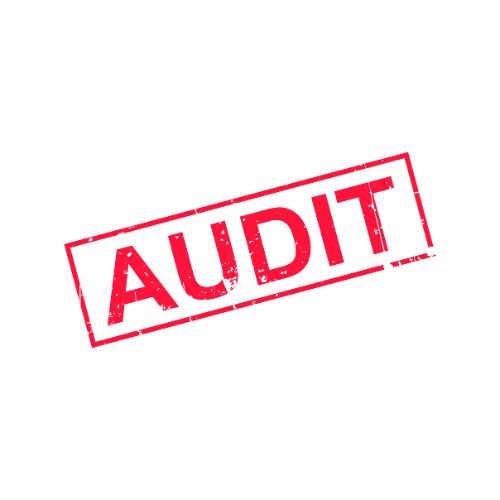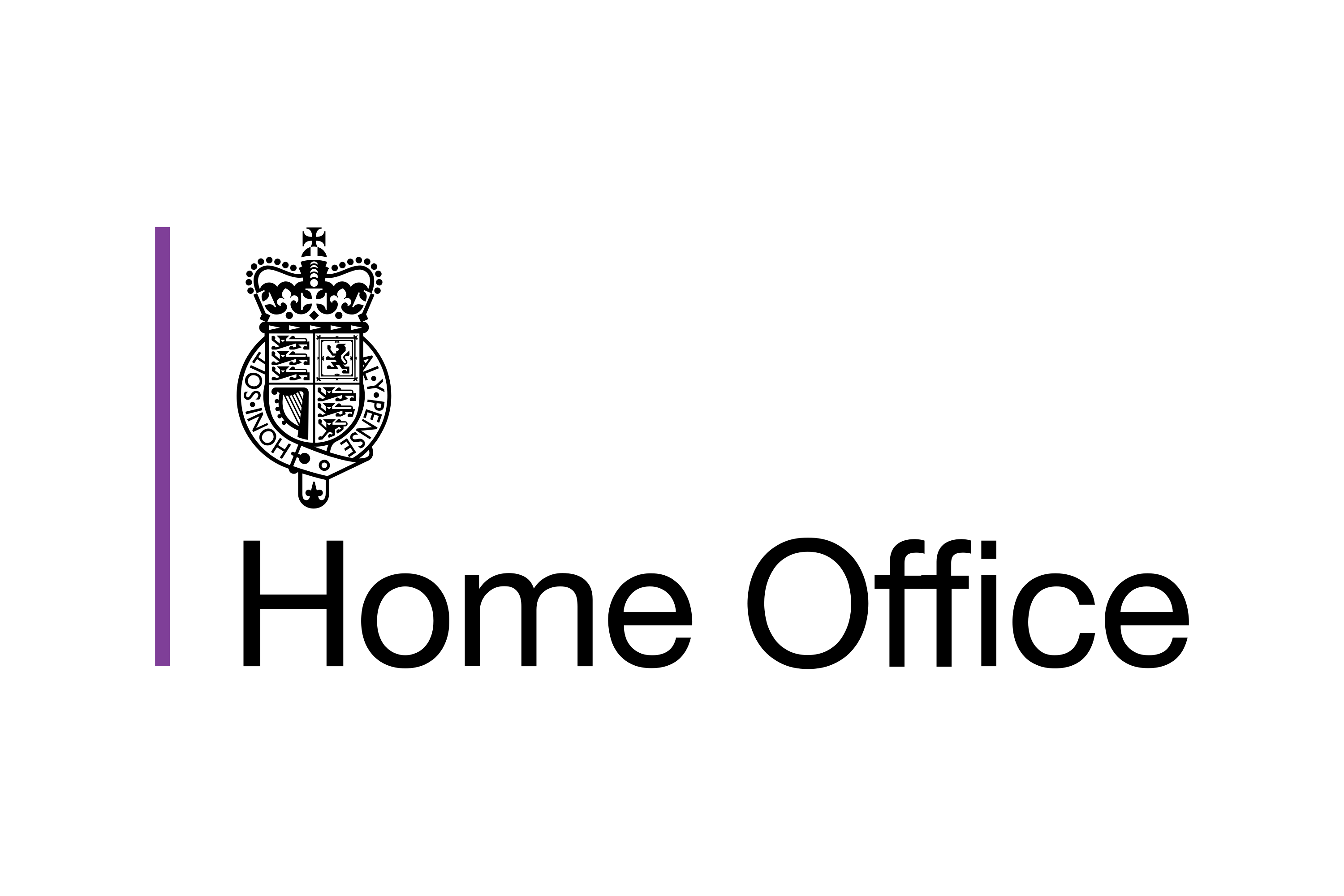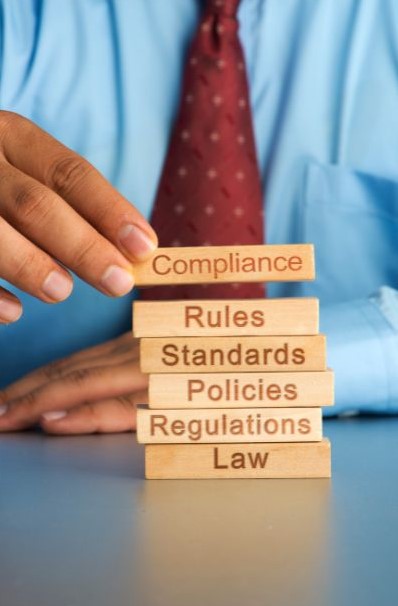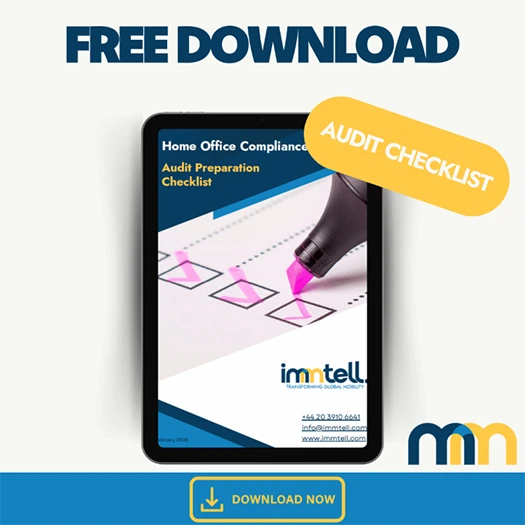The Hidden Risks of Not Preparing for a Home Office Compliance Visit
Why Home Office Compliance Visits Are a Growing Concern for UK Employers

You’ve got enough on your plate already. HR headaches. Recruitment deadlines. Endless admin. The last thing you need is a knock on the door from a Home Office compliance officer.
But if your business holds a Home Office sponsor licence, or plans to apply for one, a compliance visit isn’t just a possibility. It’s a matter of when, not if.
And here’s the problem: most employers are caught off guard.
They believe they’re doing everything right. That being fair, honest and well-intentioned will protect them. But when a Home Office officer arrives for a visit, announced or not, good intentions won’t get you very far. Evidence will.
This article walks you through what these visits are, why they’re happening more often, and how unprepared businesses can suffer real damage. If you’re responsible for immigration compliance, you need to understand these risks before it’s too late.
Home Office Compliance Visits: What Are They?
There are two types of visits that can be carried out by the Home Office:
1. Pre-licence compliance checks
These happen before your sponsor licence is approved. The Home Office wants to know:
- Are you a genuine trading business?
- Do you understand your sponsorship duties?
- Do you have systems in place to manage those duties?
They’re testing your readiness. Fail here, and your application may be refused outright.
2. Post-licence compliance visits
These are more common and more feared. Also known as Home Office audits or immigration audits, these inspections can happen at any point after your licence has been granted.
They may be:
- Announced, usually with 24–48 hours' notice
- Unannounced, particularly if there’s suspicion or intelligence received
The Home Office will check your records, your processes, your sponsored staff, and your understanding of your legal responsibilities.
Why Are Home Office Compliance Visits Increasing?
Over the past 18 months, we’ve seen a noticeable increase in audits, especially for:
- Employers sponsoring roles in the care, hospitality and construction sectors
- Businesses requesting increases in their CoS allocations
- Sponsors who have made changes to job roles or salaries
- Licence holders who’ve never been visited before
This rise is part of the government’s effort to tighten immigration controls and reduce misuse of the system. But here’s the issue, many sponsors who face audits aren’t acting in bad faith. They’re just not prepared in the way the Home Office expects.
The Mistakes That Trip Employers Up
Most sponsors don’t fail an audit because of blatant rule-breaking. They fail because:
- They’ve never had proper training on their Home Office sponsor duties
- Their HR systems aren’t set up to track immigration deadlines
- They rely on spreadsheets and email chains rather than a clear process
- Their record-keeping is patchy, inconsistent, or outdated
- They haven’t updated CoS details when job roles evolve
- They don’t carry out proper right to work checks, or keep the evidence
Often, no one in the business fully owns the sponsor compliance process. It’s a bolt-on responsibility that gets passed around or lost in the shuffle. Then, when an audit notice lands, panic sets in.

What is the Home Office Compliance Officer Looking For?
When a Home Office compliance officer visits, they’re not just skimming your records or running through a generic checklist. Their job is to test whether immigration compliance is something your business genuinely understands and lives by, not just something that sits in a drawer waiting to be dusted off when a letter arrives.
They will usually begin by reviewing your sponsored worker files. These should contain all the documents listed in Appendix D of the sponsor guidance, things like signed contracts, payslips, right to work evidence, and visa copies. If even one item is missing, it raises questions about the strength of your systems.
Next, they’ll compare the job description and salary on the Certificate of Sponsorship (CoS) to what the worker is actually doing now. Has the role evolved since they started? Have their duties changed? Are they being paid exactly what was declared, certainly no less? This kind of mismatch, even if unintentional, can lead to the perception that the role was never genuine or that you're not keeping the Home Office informed.
Compliance officers also look closely at how you’re tracking key immigration dates. They might ask: “How do you monitor visa expiry dates across the business?” or “When was this staff member’s last right to work check carried out?” If you have to scramble for answers or can’t pull up evidence quickly, it’s a red flag.
Interviews are also common. Your HR team and Authorising Officer may be asked to explain how sponsorship duties are managed day to day, who is responsible for what, and how reporting is handled. And your sponsored workers may be pulled aside for one-on-one conversations. They’ll be asked what their job involves, who they report to, how much they earn, how they were recruited. The officer is trying to test consistency, do the staff know what they’re here for, and does it match what was declared?
Then comes a review of your recruitment process. The Home Office will want to see how you concluded that a settled worker could not fill the role. Were there genuine efforts to recruit locally? Are interview records kept? Was the job advertised, and if so, where?
Finally, they’ll want to understand how you’ve dealt with changes. Have you reported absences, role changes, or early leavers within the correct timeframes? Do you have records to prove it? Are changes in working patterns or job titles reflected in your SMS reports?
All of this paints a picture. And the question they’re really asking, even if not stated outright, is this: Are you a sponsor that can be trusted?
They’re not just ticking boxes. They’re looking for evidence that compliance is woven into the way you work. That your processes aren’t just designed to pass an audit, but are robust enough to stand up on any random Tuesday morning.
The Consequences of Getting It Wrong
Failing a Home Office compliance visit can result in real, immediate consequences. These include:
- Your sponsor licence being suspended or revoked
- Your ability to sponsor new or current workers being removed
- Civil penalties of up to £60,000 per illegal worker
- Your business being publicly listed as non-compliant
- Severe disruption to your operations and reputation
Even receiving a suspension letter outlining alleged breaches can pause your ability to sponsor new workers and put your existing sponsored staff at risk. And in many cases, the Home Office doesn’t give you a second chance, particularly if they believe there’s been a serious breach.
Why Good Intentions Are Not Enough
One of the most common things we hear from clients is: “We thought we were fine.”
They’re often diligent employers. They haven’t knowingly cut corners. But in the eyes of the Home Office, not knowing the rules is no defence.
If you can’t produce a signed contract, a right to work check, or a proof of salary payment when asked, the assumption may be that you’ve failed in your duties.
The Home Office doesn’t want your reasoning. They want your records.
A More Human Way to Prepare
Immigration compliance can feel like a maze. You didn’t start your business to become an expert in Appendix D, CoS justifications, or Home Office systems. Yet here you are, responsible for getting it right, with no room for error.
That’s why we’ve built our services around how real employers actually work. Most of our clients come to us for an audit, but they stay because they don’t want to be left alone to figure out what happens next.
We start with one of our structured mock immigration audit services. These are designed to identify risks, gaps, and areas that could raise red flags in a Home Office visit. But we don’t stop there.
After the audit, we work with you to implement the improvements, fill the gaps, and build a practical system that your team can manage confidently. That often includes helping you build checklists, fix CoS issues, update policies, or retrain your HR staff.
For those who want continued peace of mind, many clients opt for one of our retainer packages. These give you direct access to a dedicated advisor, someone who knows your business, understands your risks, and is available when you need support.
You can:
- Pick up the phone and speak to a real person
- Get fast help with right to work queries, CoS allocations or job role changes
- Ask for feedback before submitting Home Office updates or requests
- Stay ahead of upcoming visits and changes to guidance
It’s like having a part-time immigration manager on call, without the cost or complexity of hiring in-house.
Whether you’re just getting started, have a visit scheduled, or want help cleaning up a historic mess, our approach stays the same. We’re calm, direct, and don’t overcomplicate things. No scare tactics. No fluff. Just practical advice and real partnership from people who’ve seen both sides of the system.

Real-World Story: What Preparation Can Look Like
A 60-person digital agency in the Midlands contacted us after receiving notice of a Home Office compliance visit. They had three Skilled Workers on their licence but had never experienced an audit before, and didn’t have formal systems in place for managing their duties.
They knew there were likely to be gaps, so they brought us in for a rapid audit and support package.
Within five working days, we:
- Carried out a full review of their sponsored worker files
- Flagged missing absence records and an incorrectly completed Certificate of Sponsorship
- Identified a change in job title for one worker that hadn’t been reported
- Delivered tailored compliance training over Zoom for the HR lead and Authorising Officer
- Created an audit-ready pack, clearly showing all actions taken and improvements underway
When the Home Office arrived the following week, the compliance officer did indeed note the same issues. But because the sponsor had already identified the problems, sought regulated advice, and taken active steps to put things right, the officer was satisfied that compliance was being taken seriously.
The licence was not downgraded, no action plan was issued, and the visit report highlighted the team’s cooperation and transparency. The officer left with confidence that the business was committed to improvement and had the right support in place to achieve it.
That’s the difference preparation can make. It doesn’t have to be perfect. But it does have to be real, documented, and actively addressed.
Preparing Now Pays Off Later
A strong immigration compliance process doesn’t just protect you from audits. It frees you up to hire faster, respond to business needs, and grow your team without unnecessary stress.
When you treat immigration sponsor compliance as part of your daily operations, not an emergency to deal with once a year, everything runs more smoothly. You avoid risks, reduce internal panic, and build confidence with staff, candidates and partners.
Let’s Make Sure You’re Ready
You don’t need to wait for an audit letter or a call from the Home Office to take immigration compliance seriously. The sponsors who come through visits unscathed are usually the ones who’ve taken early, practical steps, not just to tick the right boxes, but to embed sponsorship into the way they operate.
If you’re already aware of gaps or want a second set of eyes before anything escalates, we’re here to help. You can speak directly with a regulated specialist who understands the system, the pressures you're under, and what inspectors actually look for.
At Immtell, we support employers across every stage, from initial audits to long-term implementation and retained support. We’re registered with the Immigration Advice Authority and bring years of Home Office and private sector experience to the table.
This isn’t about scare tactics. It’s about knowing where you stand and getting the right support to stay compliant, calmly, clearly, and without disruption.
If you’re ready to talk, we’re ready to listen.


Get Ahead with a Sponsor Licence Mock Audit
A practical, no-nonsense review of your compliance. Spot risks early and get clear on what needs fixing, before the Home Office steps in.
A practical, no-nonsense review of your compliance. Spot risks early and get clear on what needs fixing, before the Home Office steps in.







